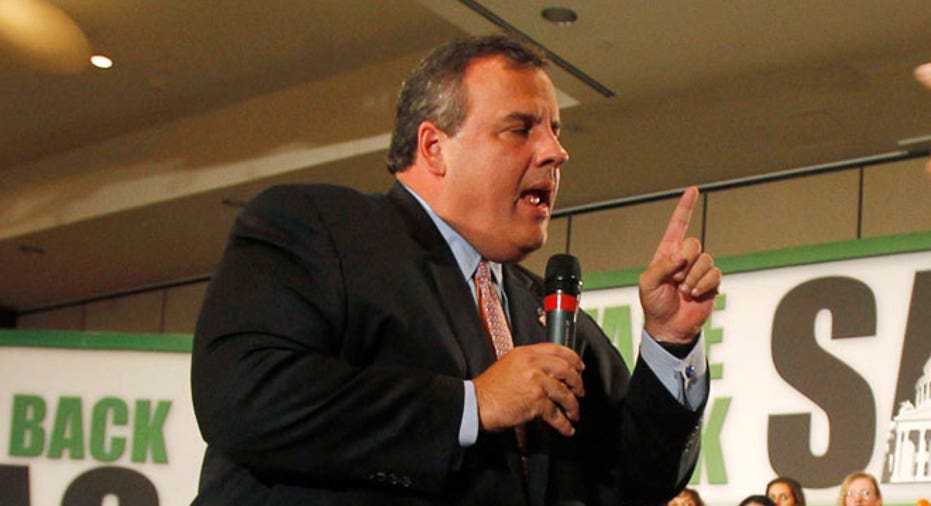Businesses Sound Off on Sandy Relief Bill, Vote

Those hit by hurricane Sandy got one step closer to rebuilding today, after Congress approved a $9.7 billion bill to help fund the Federal Flood Insurance Program. For politicians and victims of the storm, however, the vote didn’t come soon enough.
Both New Jersey Governor Chris Christie and New York Governor Andrew Cuomo spoke out after the Fiscal Cliff deal was made on delays with voting on the Sandy Aid package. Critics of the bill said there was too much funding being appropriated for things unrelated to the storm, for example, $2 million for repairing the Smithsonian’s roof.
The bill was split into two parts, with a vote on the remaining $51 billion in aid to come on January 15.
Entrepreneur Eric Ersher, founder of Retro Fitness and Let’s Yo!, has close to 100 of his franchisees in New York and New Jersey. As a fiscal conservative, he says he tends to side with Republicans, however he felt the same frustration as Gov. Christie in seeing the bill’s vote unscheduled, then delayed.
In product and inventory, he estimates he lost near $5,000 per location, however calculating lost revenue is impossible.
“It’s about the clog [delaying the vote] creates going forward,” he said. “You can’t assess the damage to a business today, because the stoppage is still going. How can you assess ongoing damage when a person can’t rebuild their home?”
Of the $60 billion bill the Senate approved, the Small Business Administration would get $812 million to support its Sandy recovery efforts, according to Senate documents. Of this total, $760 million is for the SBA’s disaster loan program, $20 million is is provide for grants to the SBA’s partners, such as the Small Business Development Centers, to help businesses with technical assistance to get restarted, as well as longer-term redevelopment counseling. An additional $20 million is for grants to states and local economic development departments for rebuilding initiatives, and finally $5 million for the Inspector General’s oversight of the SBA.
Nearly two months after the storm, the Small Business Administration’s disaster recovery loan program has lent out $46,818,500 to 435 businesses, according to spokesperson Emily Cain. The SBA has received 7,632 applications, 606 which have been withdrawn, 1137 have been declined and 5,129 are in the review process. The administration declined to comment on how much funding total they have for the loan program.
New York City-based Dr. Leon Popivitz, co-founder of NY Bone & Joint, said he is more outraged at the amount of ‘pork’ in the bill than he is about the vote being pushed back. His practice was shut down for several days post- Sandy, and he was unable to see many of his patients in the aftermath of the storm because they couldn’t get to his office.
“It hit us on a medical level, and also on a financial business level,” he said.
After researching the bill, Popovitz said he became suspicious. Although he wouldn’t be directly applying for government aid, he estimates his losses at around $100,000 in the wake of Sandy, and doesn't see how anything else could be more important than recovery and rebuilding efforts.
“Half the things in the bill were not related to Sandy,” he said. “All of these screams and accusations is a diversion from the entire government not functioning. If you look closely at the bill, as a taxpayer I am confused as to why so much of the $60 billion includes fisheries, tsunami debris and water research.”
Allen Ricca, owner of Val’s Ocean Pacific Seafood, said for unstable small companies, the government’s lack of urgency is disappointing. Although Bronx-based Val’s wouldn’t have applied for aid from the Sandy Relief Bill, Ricca said delaying the rebuilding of homes, businesses and lives just postpones his own business’ success.
“It’s a real-world issue that comes up, and you have policy makers that hold the cards and don’t want to deal with it, which has a big effect,” Ricca said. “The bill will help those who need aid, and will get us paid eventually, it’s all part of a cycle. New York City is at the center of a global economy.”
Val’s has insurance on its receivables, but if the business files on every receivable it lost, its customers would be hurt.
“If we want to collect on a customer’s receivables, they lose it,” he said. “Some of the things we have been able to take on the chin, and have only filed for about $100,000 in insurance, when it should be about $750,000.”
Delaying the vote just slows down the entire rebuilding process, Ersher said. Many of his franchisees have applied for disaster recovery loans through the U.S. Small Business Association, but he is not confident a payout is coming soon enough.
“After Katrina, they had aid in 10 days. The storm before that, it took only seven days under [former President George H.W.] Bush,” he said. “Who is making this a pot stew instead of a specific chicken soup?”



















